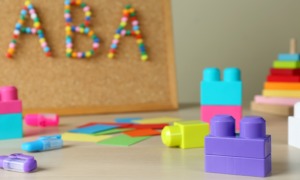Project Northland
Developed by University of Minnesota, this program targets sixth- through eighth-graders and seeks to delay the age at which teens begin drinking. It is used in 24 school districts and 28 communities.
Curriculum
Among the components:
1. The Slick Tracy Home Team: Using activity books, this four-week program provides a forum for sixth-graders and their families to discuss alcohol-related issues through activities designed to be fun and educational.
2. The Amazing Alternatives!: For seventh-grade students, consisting of eight 45-minute classroom sessions of peer-led experiential activities, including audio tapes made by youth, group discussions, class games, problem-solving and role-playing. These activities are designed to teach students to identify and resist influences to use alcohol, to change the acceptability of alcohol use, and to encourage alcohol-free alternatives.
3. Powerlines: An eight-session, four-week interactive program for eighth-grade students, designed to reinforce the messages and behaviors learned in sixth- and seventh- grade curricula. Powerlines introduces eighth-graders to professional and political groups within communities that influence adolescents’ alcohol use.
Evaluation
An evaluation by the curriculum developers tracked about 2,400 youths from the 1998 high school graduating class. Results after their eighth-grade year (1994) found that 14.3 percent of program participants reported using alcohol in the past month and smoking cigarettes once or twice, compared with 19.6 percent of those in the control group.
Costs
The initial cost of starting the program includes $230 per component. After the first year, the cost involves ordering both sets of activity books, about $300 per classroom.
Contact
(800) 328-9000 or www.hazelden.org.
Life Skills Training
Created by Cornell Medical Center Professor Dr. Gilbert Botvin, this program targets junior high school students, beginning with initial intervention in sixth or seventh grade. LST seeks to reduce the use of gateway drugs such as marijuana by convincing youths of the risks and negative consequences of drug use. The University of Colorado-based Center for the Study and Prevention of Violence is helping Botvin replicate the program in urban, rural and tribal settings nationwide.
Curriculum
A three-year program primarily implemented in classrooms by teachers. The program is delivered in 15 sessions in year one, 10 sessions in year two, and five sessions in year three. Sessions (an average of 45 minutes) can be delivered once a week or as an intensive mini-course. The program teaches students general self-management skills and social skills, and provides information and skills specifically related to drug use. Teaching techniques include instruction, demonstration, feedback, reinforcement and practice.
Evaluation
Ten evaluations by curriculum developers. The communities with LST programs have shown 50-to-75 percent decreases in tobacco, alcohol and drug use. “Pack-a-day” smoking habits decreased by 25 percent.
Costs
Approximately $250 per teacher for each training session, plus $100 materials cost. Estimated cost is $4 to $6 per student per year.
Contact
(914) 421-2525 or www.lifeskillstraining.com.
All Stars
A character-based approach to preventing high-risk behaviors in teens, All Stars addresses four topics designed to help develop positive character: Developing positive ideals, creating a belief in conventional norms, building strong personal commitments, and bonding with school and family. The core program is intended for 11- to 15-year-olds. All Stars is run by Greensboro, N.C.-based Tanglewood Research, Inc., which develops and disseminates behavioral technology.
Curriculum
Published in three formats to meet the needs of different delivery settings and methods:
1. Specialist: Designed for specialists such social workers or master teachers who visit classrooms to deliver the program. There are 21 core sessions and eight booster sessions.
2. Teacher: Designed for regular teachers, who deliver the program as part of an academic class period. There are 21 core sessions and eight booster sessions.
3. Community: Designed for use in community settings, such as with Scout troops, churches and recreation facilities. There are 15 core sessions and seven booster sessions.
Evaluation
All Stars is being evaluated in schools in Louisville and Lexington, Ky., in a research project funded by the National Institute on Drug Abuse. The project is evaluating the effectiveness of the program in preventing alcohol, tobacco, marijuana and inhalant use, on suppressing violence and delinquency, and on postponing sexual activity among teens. Initial results show reductions in drug use compared to control groups.
Costs
Core program facilitator guides are $165, and participant/student materials are $7 per student.
Contact
(336) 662-0090 ext. 101 or www.tanglewood.net/products/allstars/allstars.htm.
Project ALERT
This two-year program focuses on alcohol, tobacco, marijuana and inhalants. Project ALERT is a program of the Los Angeles-based BEST Foundation for a Drug-Free Tomorrow.
Curriculum
Uses participatory activities and videos to help students establish non-drug norms, develop reasons not to use drugs, and develop skills to resist pressures to use drugs. Guided classroom discussions and small group activities are intended to stimulate peer interaction and challenge students. Also involves role-playing and homework assignments with parents.
Evaluation
The RAND Corporation field-tested the Project ALERT curriculum. The test involved more than 6,000 students from 30 junior high schools. The study found that Project ALERT reduces the initiation of marijuana and tobacco use by 30 percent, reduces heavy smoking 50-to-60 percent, and performs equally well in a variety of socioeconomic settings.
Costs
For $125 per teacher, each teacher receives the training and materials package. There are no on-going costs for student materials, with the exception of a few reproducible handouts.
Contact
(800) 253-7810 or www.projectalert.best.org.
– Amy Bracken






























